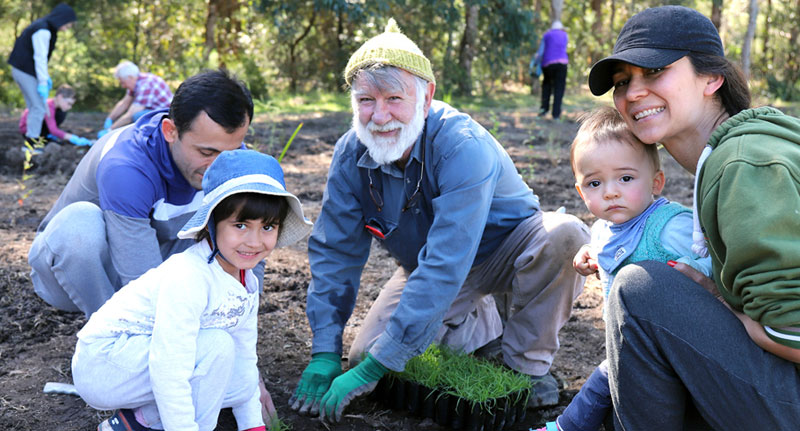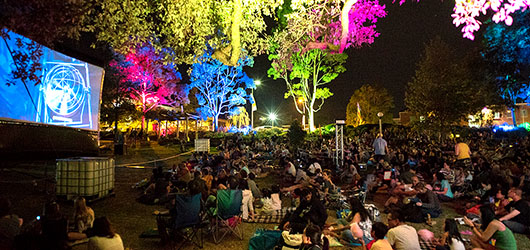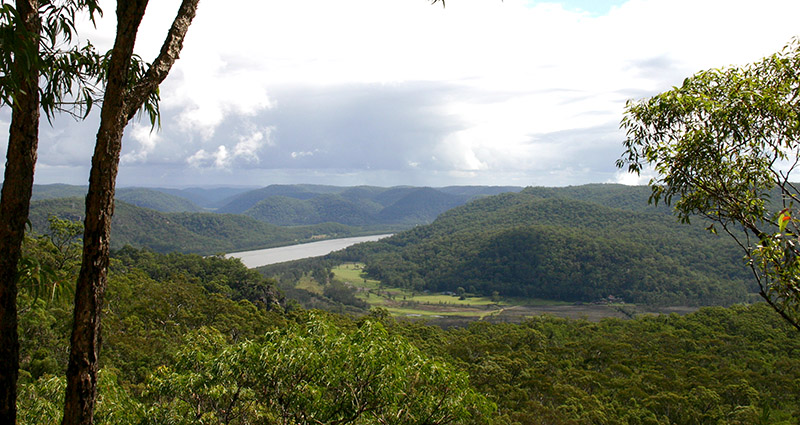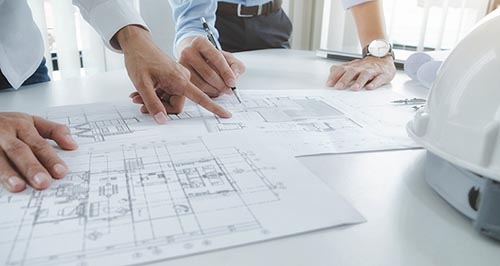Hornsby Shire Council Local Planning Panel
The Council of the Shire of Hornsby Local Planning Panel ‘the panel’ was constituted by the Minister Planning on 1 March 2018. The Panel comprises qualified people independent of Council that have the functions of a Council as a consent authority under Part 4 to determine a range of development applications that have an estimated development cost less than $30 million. The Panel also has an advisory function, offering advice to Council prior to its consideration on whether to prepare and refer a planning proposal to the Minister or Greater Sydney Commission for Gateway Determination.
Elected Councillors no longer decide the outcome of individual development applications and are instead referred to the Panel for consideration and determination. Council officers still assess the development application and then reports it to the Panel. The panel reviews the application and the officer’s assessment and makes a determination.
In August 2020, the NSW Government made changes to the way Local Planning Panels work to make them more efficient and to improve the assessment and determination times of development applications and maintain panel oversight of sensitive and contentious applications.
The changes will speed up panel determinations by:
- Reducing the need to conduct public panel meetings for non-contentious matters by applying a ‘10-or-more’ objection trigger for public meetings.
- Reducing the amount of modifications going to panels
- Obliging panel chairs to more actively manage development applications (DAs) coming to the panels to reduce panel deferrals and assessment timeframes.
- Allowing chairs to bring forward determination on DAs that are experiencing unreasonable delays of over 180 days from lodgement.
- Introducing panel performance measures.
The Panel inspects a site prior to determination of the application and provides a transparent forum for applicants and objectors to make verbal submissions.
All decisions made by the Panel are final.
1. Development for which the applicant or land owner is:
- the council,
- a councillor,
- a member of council staff who is principally involved in the exercise of council's functions under the Environmental Planning and Assessment Act 1979,
- a member of Parliament (either the Parliament of New South Wales or Parliament of the Commonwealth), or
- a relative (within the meaning of the Local Government Act 1993) of a person referred to in (b) to (d).
but not development for the following purposes:
- internal alterations and additions to any building that is not a heritage item,
- advertising signage,
- maintenance and restoration of a heritage item, or
- minor building structures projecting from the building facade over public land (such as awnings, verandas, bay windows, flagpoles, pipes and services, and sun shading devices).
2. Contentious development (Subject to determination at a Public Meeting)
Development that:
- in the case of a council having an approved submissions policy - is the subject of the number of submissions set by that policy, or
- in any other case - is the subject of 10 or more unique submissions by way of objection. (Note: A petition or pro forma letter is counted as one objection for the purpose of this criteria. Each objection needs to be unique.)
3. Departure from development standards
- Development that contravenes a development standard imposed by an environmental planning instrument by more than 10% or non-numerical development standards.
4. Sensitive development
- Designated development.
- Development to which State Environmental Planning Policy (Housing) 2021, Chapter 4 (Design of residential apartment development) applies and is 4 or more storeys in height.
- Development involving the demolition of a heritage item.
- Development for the purposes of new licenced premises, that will require one of the following liquor licences:
- a club licence under the Registered Clubs Act 1976,
- a hotel (general bar) licence under the Liquor Act 2007, or
- an on-premises licence for public entertainment venues under the Liquor Act 2007.
5. Modifications to Development Consents
Local planning panels are to determine applications under section 4.55(2) of the Act for the modification of development consents granted by the panel that:
- propose amendments to a condition of development consent recommended in the council assessment report but which was amended by the panel, or
- propose amendments to a condition of development consent that was not included in the council assessment report but which was added by the panel, or
- meet the criteria for development applications set out in the Schedules to this direction relating to conflict of interest, contentious development or departure from development standards.
6. Development for the purpose of sex services premises and restricted premises.
7. Development applications for which the developer has offered to enter into a planning agreement.
Planning proposals prepared after 1 June 2018 are referred to the Panel for advice prior to Council’s consideration on whether to prepare and refer a planning proposal to the Minister or Greater Sydney Commission for Gateway Determination. Planning proposals are not required to be referred for advice where the General Manager determines the planning proposal relates to:
- The correction of an obvious error in a local environmental plan,
- Matters that are of consequential, transitional, machinery or other minor nature, or
- Matters that will not have any significant adverse impact on the environment or adjoining land.
Public meetings are generally held on the last Wednesday of the month for Contentious Development that is subject of 10 or more unique submissions by way of objection. All other applications determined by the Panel will not be determined at a public meeting. Meetings dates and times may change due to public holidays and depending on the number of items to be considered.
The agenda will be made available 7 days prior to the meeting. On-site inspections may be carried out on the day of the Panel meeting so Panel members can acquaint themselves with the site and relevant issues. Inspections are not open to the general public. Council staff will be available to the Panel during inspections and meetings to answer questions and clarify issues.
Meeting Dates for 2025
Public meetings are held via teleconference and can be livestreamed. The panel determination meeting will commence at 4pm.
Next meeting:
Wednesday, 27 August 2025
Agenda and Minutes
Meeting Recordings
Live Streaming of Local Planning Panel Meeting
Members of the public wishing to address the Panel at a Public Meeting regarding an agenda item must register by 12 noon on the day prior to the Panel meeting (excluding weekends and public holidays). To register contact Council’s Administration Support Officer by phone on 02 9847 6579 or email lpp@hornsby.nsw.gov.au.
Registered speakers must have already lodged a written submission on the Development Application (DA) they wish to address or must provide a brief written summary no greater than one A4 page, outlining the issues they wish to raise to the Panel Coordinator by 12 noon on the day prior to the meeting (excluding weekends and public holidays).
All speakers (objector, applicant or supporter) addressing the Panel may not speak for more than 3 minutes in respect of any one matter before any particular meeting, unless the Panel otherwise permits. The Chairperson opens the meeting and introduces the Panel members. The order of business is set out in the agenda. Copies of the agenda will be available at the meeting. Business papers will be available on Council’s website 7 days prior to the meeting. As each item is referred to, the objectors are invited to speak for 3 minutes. The applicant will then be invited to respond. The Panel members may ask questions of the addressees. It is not necessary to repeat information already provided in the report to the Panel. Once all speakers have addressed the Panel on the item, the Panel may:
- adjourn the public meeting to deliberate before reconvening for voting and determination, or
- close the public meeting for deliberation and/or voting and determination.
Determinations and any relevant decision of the Panel shall be made by a majority vote and is recorded for the public record. Minutes of the Panel are to be made publicly available the next business day following the meeting. The applicant will be provided with a notice of the decision or determination made by the Panel. Those parties which have made written submissions will also be made aware of the decision in writing.
The Panel consists of four members, drawn from a 'pool' of members. Each panel will include a Chairperson; two experts with experience and qualifications in law, architecture, planning, arboriculture, environmental planning, or governance and public administration; and one community representative who has experience in the same or similar fields to the expert members.
Panel members include:
Chairperson
- Penelope Holloway
- Scott Barwick
- Stephen Leathley
Technical Expert Members
- Alison McCabe
- Anthony Hudson
- Clare Brown
- Elizabeth Kinkade
- Gregory Flynn
- Heather Warton
- Ian Arnott
- John Brockhoff
- Judy Clarke
- Larissa Ozog
- Lisa Trueman
- Marjorie Ferguson
- Michael Leavey
- Scott Barwick
- Stephen Leathley
- Stephen McMahon
Community Representatives
- Amanda Anderson
- Martin Dargan
- David White
- Aiman Khan
- Tony Jones
All members of the Panel are bound by the Panel Code of Conduct.
- Register of Local Planning Panel Decisions 2024 (PDF 93KB)
- Register of Local Planning Panel Decisions 2023 (PDF 106KB)
- Register of Local Planning Panel Decisions 2022 (PDF 142KB)
- Register of Local Planning Panel Decisions 2021 (PDF 157KB)
- Register of Local Planning Panel Decisions 2020 (PDF 161KB)
- Register of Local Planning Panel Decisions 2019 (PDF 112KB)
- Register of Local Planning Panel Decisions 2018 (PDF 28KB)
Advice on Planning Proposals from Local Planning Panel
- LPP Advice No. 02/25 – Planning Proposal – Employment Lands Study – Short Term Recommendations
Minutes 30 July 2025 - LPP Advice No. 01/25 – Planning Proposal – Johnson Road, Galston
Minutes 30 April 2025 - LPP Advice No. 01/24 Planning Proposal – Heritage and Housekeeping
Minutes 27 March 2024 - LPP Advice No. 01/23 Planning Proposal – Rural Lands Amendment
Minutes 31 May 2023 - LPP Advice No. 04/22 – Planning Proposal – Byles Creek
Minutes 26 October 2022 - LPP Advice No. 03/22 – Owner initiated Planning Proposal – 679-685 Old Northern Road, Dural
Minutes 25 May 2022 - LPP Advice No. 02/22 – Owner initiated Planning Proposal – 7 City View Road, Pennant Hills
Minutes 25 May 2022 - LPP Advice No. 01/22 – Planning Proposal – High and Ashley Streets, Hornsby
Minutes 25 May 2022 - LPP Advice No. 02/2020 – Planning Proposal – Vegetation Mapping
Minutes 30 September 2020 - LPP Advice No. 01/20 – Owner initiated Planning Proposal at 805-821 Old Northern Road Dural
Minutes 27 May 2020 - LPP ADVICE No. 02/19 – Planning Proposal – Housekeeping Amendment
Minutes 24 September 2019 - Local Heritage Listing of 22 Trees at 62 Manor Road, Hornsby
Minutes 31 July 2019








